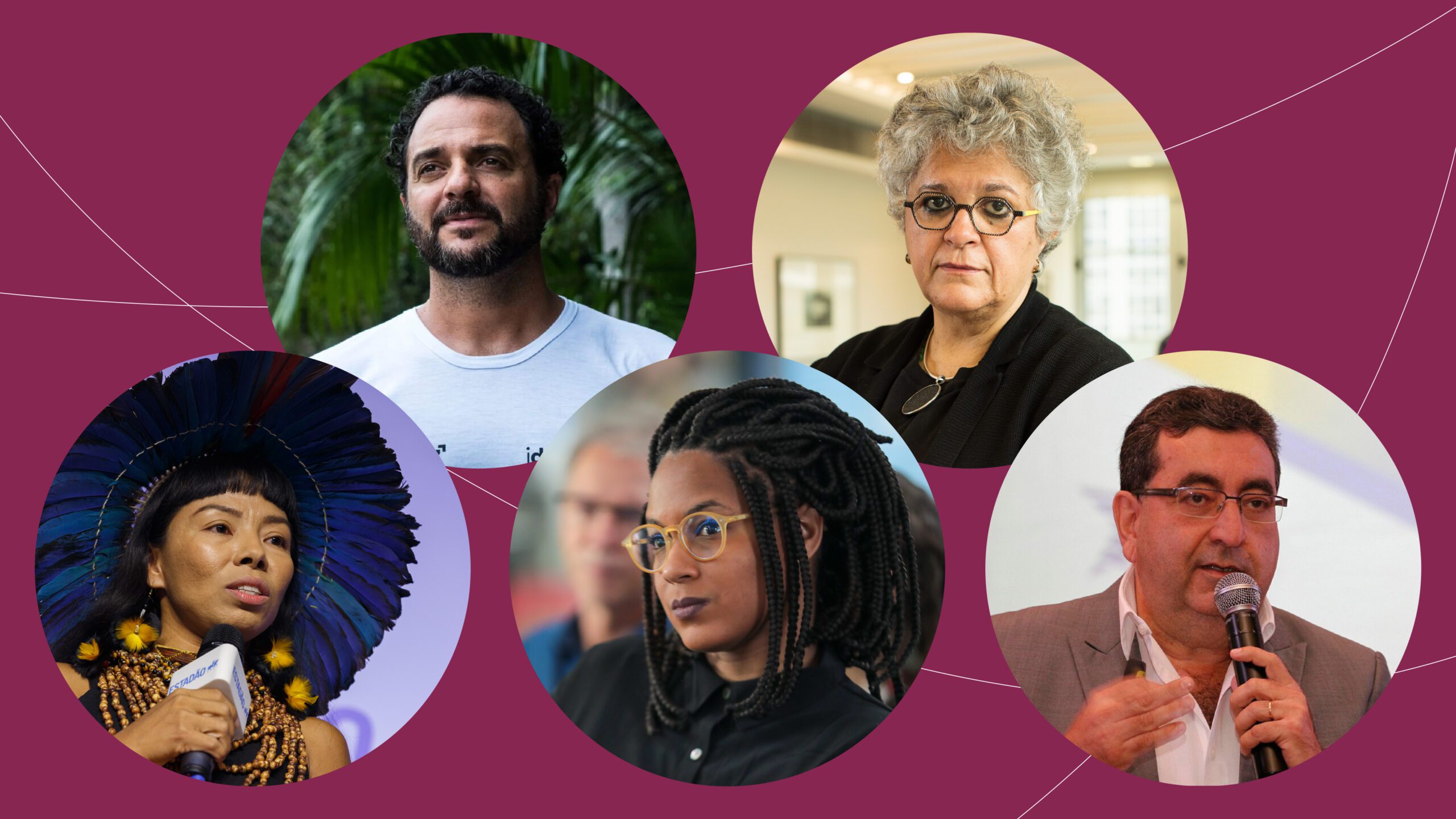
For the group of fellows from Instituto Arapyaú, 2024 was a year of consolidating dialogues and strategies on sustainable development and possibilities for changing realities in the Amazon and Atlantic Forest based on nature-based solutions. The consolidation of the network A Concertation for the Amazon, an initiative incubated by Arapyaú, as a political space for debate on this territory is a reason for celebration for the group, composed of Izabella Teixeira, former Minister of the Environment; Vanda Witoto, teacher, nurse, and indigenous leader; journalist Andréia Coutinho Louback; lawyer Adnan Demachki and Mariano Cenamo, co-founder of the Institute for Conservation and Sustainable Development (Idesam).
In 2025, the group intends to deepen studies on the relationship between artificial intelligence (AI) and sustainability and on the opportunities and strategies for promoting bioeconomy in the Amazon. “We consider AI the greatest revolution in history and believe that it can enhance actions in defense of the climate, promoting a fairer and more efficient transition to a green economy,” says Adnan.
The discussion on climate no longer revolves around how to keep global warming below 1.5°C, but on the efforts needed to return to that limit. In this scenario, Izabella Teixeira believes that innovation will play a role in connecting adaptation policies and the realities of energy transition and climate transition. “Arapyaú should focus more on understanding that new instruments and tools will help in short-term adaptation capacity and economic development based on a new relationship with nature,” she says.
With COP 30 in Belém on the horizon, the fellows also want to develop actions that stimulate the valorization of forest products, generating employment and income in their territories. The goal is to strengthen the ties between science, public policies, and the private sector, transforming innovative ideas into transformative actions with real impact. For Vanda Witoto, this is an opportunity to give prominence to indigenous peoples. “One of our projects is to strengthen the participation of indigenous women at COP 30,” she says.
With the world’s eyes on Brazil, 2025 will be a year of many opportunities in the bioeconomy agenda. Mariano Cenamo emphasizes that, to reap the benefits of this moment, it is necessary to invest in research, development, and innovation, build direct bridges between entrepreneurs from outside and inside the Amazon, and create strategies to attract private and philanthropic capital. “This year, everyone wants to say they are doing something for the Amazon. Our role is to demand and ensure that this becomes a reality,” he states.